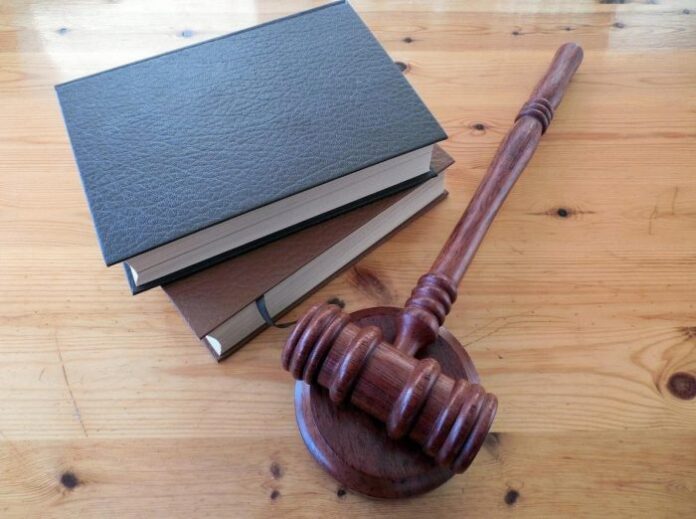Are you considering filing for the wrongful death of a loved one? Read this first…
When you suffer through the death of a loved one, it is likely that we will look for someone to blame. In the case of wrongful death, however, you must stop yourself hunting down those responsible and go through legal routes to get your vengeance.
Filing a Wrongful Death Lawsuit lets you get back at least some of what you have lost. It won’t bring your loved one back to you, but it can make you feel like you have done something to avenge them. It can also bring you enough financial support to get you through the difficult time and back on your feet again.
Let’s talk about wrongful death lawsuits and the 7 essential elements thereof.
The 7 Essential Elements of a Wrongful Death Lawsuit
Before you file for wrongful death, here are the 7 things you ought to know…

1 – You WILL need a Specialist
Unless you want to have your voice swept aside and your case forgotten about, you are going to need a wrongful death lawyer. In order to give yourself a fighting chance at claiming back funerary and lost income expenses, you have to call in the big guns. Try ddrlawyers.com if you live in the Miami area. If not, then searching “best wrongful death lawyer near me” can help.
2 – Exceeding the Standard
The first stage of your wrongful death lawsuit can only be completed when you go to a lawyer and present your proof. The standard of proof is the benchmark above which the death is wrongful and where a party can be named at fault.
Once you take this proof to a lawyer, they will be able to advise you on whether you have a case. Usually, your case will be accepted, and the wrongful death lawyer will start to work on your behalf.

3 – Accumulation of Damages
In order to get back exactly what wrongful death has cost you; you need to go through your budget and add up the damages. Damages include funeral and medical expenses, lost earnings of all parties involved, and even the annual salary of the deceased.
Accumulating the damages ought to include a sum of money set aside for your pain and suffering. It is difficult to put a price on pain and suffering, another good reason why a wrongful death lawyer should be your first port of call.
Sorting out your damages is essentially putting a price tag on the whole affair… not on your loved one’s life. This is the cost you will pay financially for having to live without them, as well as the future burden of grieving. Think about the emotional and mental health impacts of your loved one’s loss. This will all come together to help establish the figure.
4 – Establishing a Duty of Care
Before you can claim that there is a wrongful death at play, you must be able to prove that someone had a duty of care to protect that person, to begin with. If your loved one died in an accident at work, it stands to reason that your loved one’s employer has the liability of their death. In other cases, it isn’t quite as straightforward as this.
For example, if your loved one wandered onto a building site and something fell on them, then things become difficult. The duty of care from the construction company to the general public should mean that they have warning signs all over the site. If your loved one wasn’t paying attention and wandered onto a construction site that was following the law to the letter, then you might not be able to establish a duty of care.

5 – Proving Causation
This is a fiddly part of tort law that means you must establish a direct link between the defendant’s actions (or inactions) and the death of your loved one. In our building site example, you would easily prove that your loved one died when things fell on them. In a medical case, however, this might not be so cut and dry.
Proving causation means proving something that could/should have been avoided, was the direct reason for your loved one’s death. IF you can’t prove that, then you won’t have a case.
6 – Were they Negligent?
If negligence is involved, can you prove it? Negligence means that the building site knew the general public might wander onto their construction site but didn’t bother warning them with signage. Negligence means that the duty of care was not followed, even though it might have been pointed out already.
If someone is negligent to the point of danger, this sometimes escalates to malpractice, especially in the medical field. So, it is possible to muck things up so badly that someone dies… even in the world of work.

7 – Looking for Breaches
This goes back to that established duty of care from earlier on. If that duty has been breached, your wrongful death lawyer will be able to prove it and get you compensation. There are certain circumstances where there has been no duty of care, and therefore the defendant could not be expected to know your loved one was at risk. These incidences are few and far between.
If your lawyer doesn’t think a duty of care has been breached, there is a chance that they won’t accept your case. They will advise you of this from the first appointment, though, so it is worth a consultation to find out.
Moving Forward with your Life
The end goal of all of this is to allow you to move on with your life, after you have endured the wrongful death of a loved one. The lawyer will try to get as much money for you as possible. They will represent your interests in court and give voice to your loved one, when they can no longer speak.
Should you hire a wrongful death attorney? Absolutely. Don’t let them get away with it or it might just happen to someone else.









